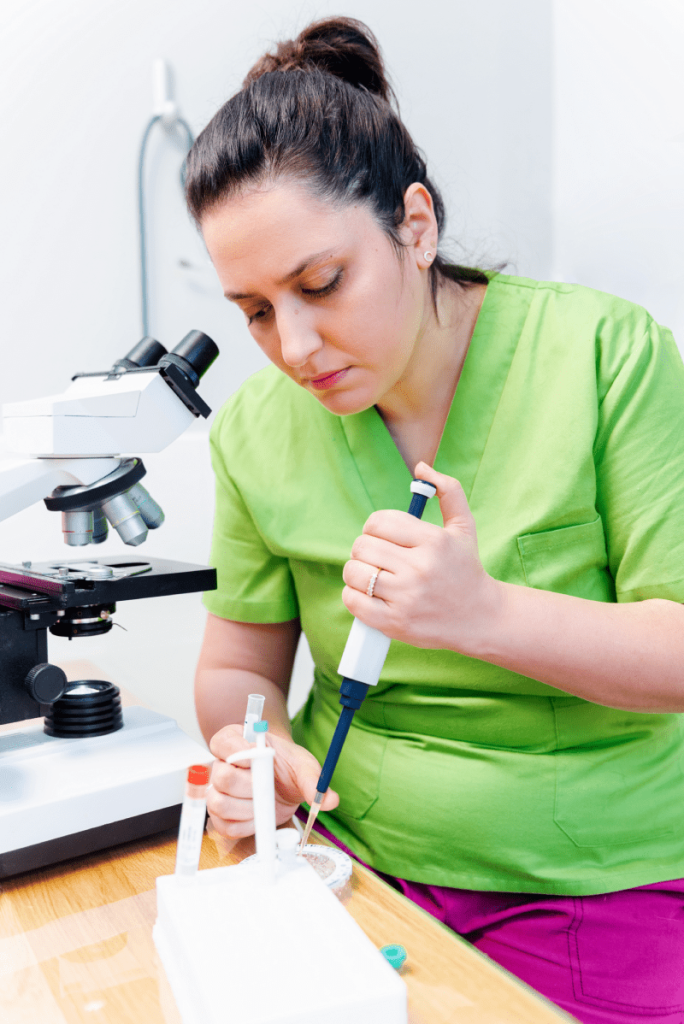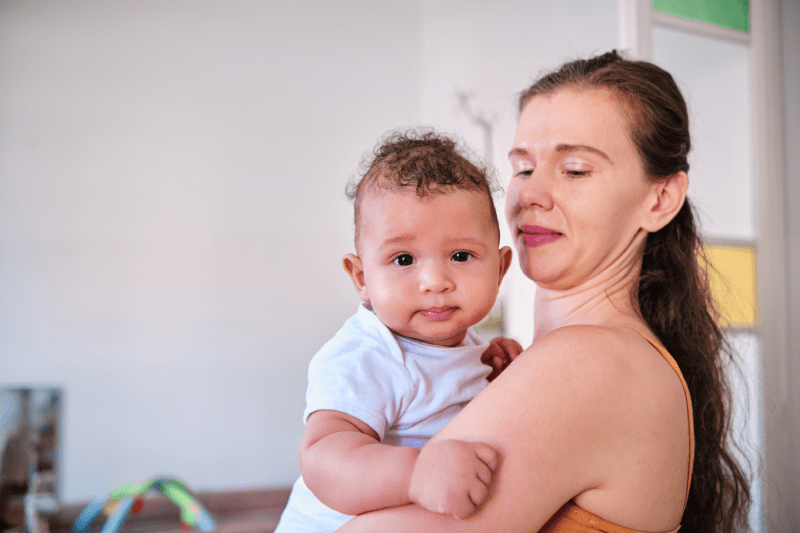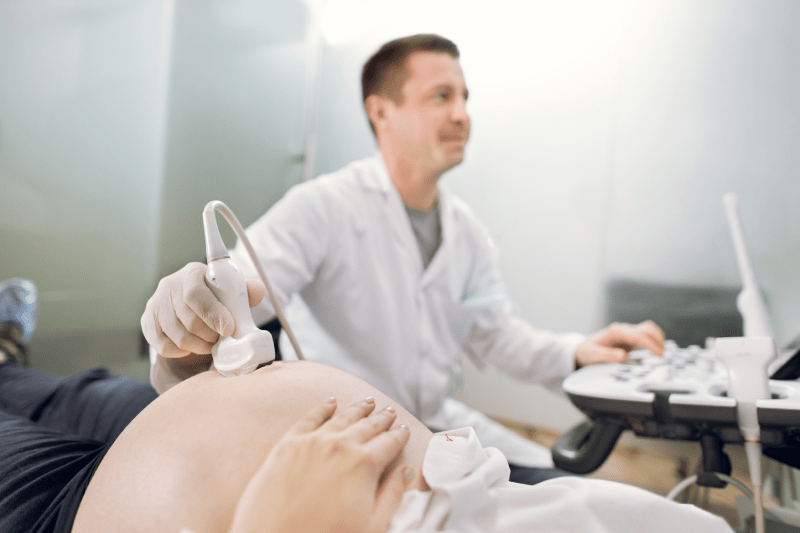What Is The Average Cost Of IVF Treatment In Turkey?
The average cost of a standard In Vitro Fertilization (IVF) treatment cycle in Turkey is quite economical compared to prices in Western Europe and the USA, typically ranging between $2,500 and $4,500. This pricing includes essential services such as the initial consultation, egg retrieval (OPU), laboratory procedures, and embryo transfer.
These competitive prices stem from Turkey’s low operating costs, affordable medication prices, and exchange rate advantage. However, it is important to note that this base fee does not include the expense of hormone medications to be used and the fees for advanced laboratory procedures such as PGT. For a precise budget plan, you can contact Cure Holiday to learn about tailor-made package prices.
What Are The Main Factors Determining IVF Success Rates In Turkey?
The success rates of IVF centers in Turkey are at international standards and are quite high. The most critical factors determining success are the prospective mother’s age, egg and sperm quality, and the advanced laboratory technologies used by the clinic.
Turkish centers achieve high live birth rates, especially in younger age groups, thanks to their experienced embryology teams and modern equipment (Time-Lapse, Vitrification). The patient’s general health status, the correctly determined treatment protocol, and the response to the medications used in the treatment are also important elements that directly affect the outcome.
Why Are Treatment Prices More Affordable In Turkey Compared To Europe And The USA?
The main reason why IVF treatment prices in Turkey are more affordable compared to Europe and the USA is due to the lower general living and operating costs. Hospital and laboratory running expenses, personnel wages, and even medication procurement costs are lower compared to clinics of similar quality in Western countries.
Additionally, the exchange rate advantage provides significant financial savings for international patients when treatment fees are converted into the local currency. This situation makes Turkey an ideal destination for couples seeking affordable treatment without compromising quality.
What Is The Laboratory And Technology Quality Of Turkish Clinics Like?
Turkish IVF clinics use state-of-the-art equipment that complies with international accreditations in terms of laboratory and technology quality. In many centers, Time-Lapse incubators that allow uninterrupted monitoring of embryo development and modern vitrification (rapid freezing) methods for the safe storage of embryos are standardly applied. Experienced embryologists and the rapid adaptation of current techniques form the scientific basis behind the high success rates of these centers. High hygiene standards and technical competence keep the treatment quality at the highest level.
How Should Medication Expenses In IVF Treatment Be Calculated?
The cost of hormone medications (gonadotropins) used in IVF treatment must be calculated in addition to the base treatment package and varies from person to person. Medication costs in Turkey usually constitute an additional expense of between $500 and $1,500, depending on the patient’s ovarian reserve, age, and the protocol determined by the doctor. This figure is significantly lower than medication costs in the USA or Europe. Obtaining medications from Turkey is one of the most important ways to reduce the cost. Detailed planning before starting treatment is essential for the accurate calculation of medication expenses.

How Do Success Rates Vary According To The Age Factor In Turkey?
Success rates in Turkey, as is the case globally, decrease as the prospective mother’s age advances. While live birth rates remain high in women under 35, this rate shows a marked decline over the age of 40. Turkish centers frequently use PGT (Genetic Screening) and personalized protocols to increase the chance of success for patients in advanced age groups. To minimize the impact of age on success and guide patients to the right treatment, Cure Holiday consultants can share detailed age-based success data with you.
What Is Included In The Total Cost Of A Single IVF Cycle?
The total cost of a single IVF cycle in Turkey is determined when medication expenses ($500 – $1,500) and potential additional procedures (ICSI, mandatory blood tests) are added to the base package fee ($2,500 – $4,500). Generally, the initial consultation, egg monitoring, egg retrieval, and embryo transfer are included in the price. However, advanced procedures like PGT, embryo freezing, and annual storage fees are extra costs. All these items must be carefully calculated and the total budget clarified to avoid unexpected expenses.
What Additional Treatments Are Applied For Recurrent Failures?
Turkish IVF centers offer various additional treatments that comply with international guidelines for couples experiencing recurrent implantation failure (RIF). These treatments include Endometrial Receptivity Analysis (ERA), intralipid infusions, uterine scratching (Endometrial Scratching), and hysteroscopy procedures to address intrauterine problems. These advanced techniques aim to maximize the embryo’s chance of attaching to the uterus. Each of these add-on treatments is priced in addition to the standard IVF fee and is applied based on the doctor’s recommendation.
Is The Cost Of Frozen Embryo Transfer (FET) Different From Fresh Transfer?
Yes, the cost of Frozen Embryo Transfer (FET) in Turkey is significantly lower compared to a fresh cycle. While the fresh cycle includes all egg retrieval and laboratory procedures, the FET cost covers only the preparation of the uterine lining (medications) and the transfer procedure. FET cost is typically about 30% to 50% of the cost of a basic fresh IVF cycle. This creates a cost-effective new chance for couples, especially those with frozen embryos remaining after the first attempt.
How Much Does The PGT (Preimplantation Genetic Diagnosis) Procedure Cost In Turkey?
The PGT (Preimplantation Genetic Diagnosis/Screening) procedure is a significant expense item added to the IVF cost in Turkey. While the cost varies depending on the number of embryos to be examined and the scope of the test (PGT-A, PGT-M, PGT-SR), it generally requires an additional fee between $2,000 and $4,000. PGT is a critical step that enhances success, especially for couples with genetic risks or advanced age, and this cost is at a more affordable level compared to international centers.
How Are Accommodation And Travel Expenses Managed For Foreign Patients?
Accommodation and travel expenses for foreign patients receiving treatment in Turkey are generally managed through medical tourism agencies like Cure Holiday. These agencies organize comfortable and hygienic accommodation options (hotels or apartments) close to the clinics. Transportation (airport transfers and local transportation to and from the clinic) is also included in the planning. All logistical details are meticulously handled to reduce the stress caused by the treatment process and allow the patient to focus solely on the process.
What Legal Restrictions Are There For IVF Treatment In Turkey?
IVF treatments in Turkey are subject to strict ethical and legal regulations by the Ministry of Health of the Republic of Turkey. The most important legal restrictions are that egg, sperm, and embryo donation are strictly prohibited, and surrogacy is also illegal. Treatment can only be performed on married couples using their own reproductive cells. Furthermore, the number of embryos to be transferred is legally restricted based on the prospective mother’s age and the number of previous attempts. This legal framework ensures the treatment proceeds safely within ethical rules.
What Is The Average Length Of Stay In Turkey During The Treatment Process?
The average duration of stay in Turkey for a full fresh IVF cycle, from the start of ovarian stimulation until the embryo transfer, is between 15 and 20 days. Patients are required to spend the entirety of this period in Turkey. If only a Frozen Embryo Transfer (FET) is to be performed, this period can be reduced to a shorter duration, such as 3 to 7 days, depending on the uterine lining preparation protocol. You can shorten this period by completing preliminary tests in your home country with Cure Holiday.
Is Donation (Egg/Sperm) Legal In Turkish Clinics?
No, according to Turkish law, egg, sperm, or embryo donation is strictly prohibited. Treatment in Turkish IVF centers can only be performed using the couple’s own reproductive cells. No treatment option is offered in Turkish clinics for couples requiring donation. Couples with such a need must be directed to other international centers where donation is legally and ethically possible, and Cure Holiday provides consultancy services regarding alternative countries in this matter.
Is The ICSI (Microinjection) Procedure Included In The Basic Package?
In many IVF centers in Turkey, the ICSI (Intracytoplasmic Sperm Injection) procedure is included in the basic IVF package or offered with a very low additional fee, due to the high success rate of the standard practice. ICSI is mandatory, especially for couples with issues in sperm count, motility, or structure (male factor infertility). Turkish laboratories routinely apply the ICSI technique to maximize fertilization success. This makes Turkey a competitive factor on an international scale.
How Is The New Treatment Cost Calculated After An Unsuccessful Attempt?
The new treatment cost in Turkey after an unsuccessful IVF attempt depends on whether frozen embryos remain from the previous cycle. If frozen embryos are available, only the Frozen Embryo Transfer (FET) fee is paid, which is much lower than the basic IVF cost. If a new fresh cycle is required, the pricing will be close to the full IVF cost from the beginning, but some centers may offer discounted packages. It is important to evaluate these possibilities in advance during financial planning.

Do Turkish Clinics Have International Accreditations?
Yes, many leading IVF centers in Turkey hold international accreditations such as JCI (Joint Commission International) to prove their service quality at an international level. JCI accreditation indicates that the clinic meets global standards in patient safety, quality management, and clinical performance. These accreditations are an important indicator of trust for foreign patients to be certain of the quality of the center where they will receive treatment. Cure Holiday takes care to ensure that the centers it works with have such accreditations.
How Is A High-Quality Embryo Obtained And How Does It Affect Success?
Obtaining a high-quality embryo is the most critical element for treatment success and depends on the correct stimulation protocol, egg quality, and laboratory conditions. Embryologists grade embryos based on their cell division rate, cell count, and morphology (structure). Transferring the highest quality embryos (those that have reached the blastocyst stage) multiplies the chance of implantation and live birth. The modern laboratories and experienced teams of Turkish clinics are focused on optimizing embryo development.
What Preliminary Tests Are Required Before Starting IVF Treatment?
To personalize the treatment protocol, Turkish IVF centers routinely request Ovarian Reserve Tests (AMH, FSH, Estradiol), ultrasonographic evaluation of the uterus and ovaries from the prospective mother, and infectious disease screening (HIV, Hepatitis, etc.) from both partners. For men, a detailed sperm analysis must be up-to-date. Having these preliminary tests done in your home country and sending the results with an English translation accelerates the treatment process in Turkey and reduces the cost.
Can Medications Be Obtained More Affordably In Turkey Than Abroad?
Yes, the prices of hormone medications (gonadotropins) used in IVF treatment in Turkey are significantly more affordable compared to many countries worldwide. Turkey’s drug pricing policies and the accessibility in local pharmacies create a major cost advantage for foreign patients. Patients obtaining their medication prescriptions from Turkish clinics and acquiring them from contracted pharmacies in Turkey offer the potential to further reduce treatment costs. This is one of the fundamental elements that make Turkey financially attractive.
What Are The Waiting Times And Appointment Procedures In Turkish Clinics?
Turkish IVF centers provide dedicated services to international patients due to high demand for medical tourism, and therefore waiting times are generally very short. Patients can usually start treatment within a few weeks after completing all preliminary tests. Appointment procedures are managed through patient coordinators, and travel dates are pre-arranged according to the patient’s cycle. This fast and organized process is a significant advantage for couples who want to start treatment as soon as possible.
How Is The Language Barrier Overcome During Treatment?
Turkish IVF centers employ multilingual international patient coordinators for the comfort of international patients. These coordinators manage the patients’ communication with the clinic, appointments, medical translations, and all logistical processes in their native language or English. Professional medical interpreters are present during critical stages like egg retrieval and transfer. Cure Holiday centralizes this communication, ensuring patients feel secure and understood throughout the treatment process.
Why Are Prices In Turkey Different From Some Eastern European Countries?
Although IVF prices in Turkey may be slightly higher than in some Eastern European countries, this difference usually stems from the quality of technology offered, hospital standards, and clinical experience. Turkey has high-accredited centers that have rapidly adopted the latest laboratory technologies from Europe and the USA. By combining the price advantage with quality and safety standards, Turkey stands out as a more balanced and reliable option in terms of price/performance.
Do Insurance Companies Cover IVF Treatment In Turkey?
IVF treatment costs in Turkey are generally not covered by international health insurance or national health programs. Treatment expenses must be paid from the patient’s own budget. However, some private international insurance policies or medical travel insurance may cover potential complications or emergencies that may arise during the treatment. Therefore, it is necessary to carefully review the details of your insurance policy and clarify the coverage before starting treatment.
Is It Safe To Travel After The Transfer?
Traveling by plane immediately after embryo transfer is generally considered safe. The embryo is placed inside the uterus in a way that is not affected by air pressure or light movements. However, doctors may recommend resting for the first few hours after the transfer. It is important to take precautions recommended by the doctor to reduce the risk of clotting, such as light movement during long flights and drinking plenty of water. Patients can usually return to their home country within 1-2 days after the transfer.
Are There Urban Differences Affecting IVF Prices?
Yes, there are urban differences affecting IVF prices in Turkey. In large metropolises like Istanbul, Ankara, and Izmir, and in cities with high medical tourism density, the operating costs and prices of clinics may be slightly higher than in other cities. However, these large cities generally offer a wider range of clinic options, more experience, and access to more advanced technology. When comparing prices, the clinic’s success data and location should be considered in addition to the cost.
Who Is The PGT Procedure Recommended For And What Are Its Benefits?
The PGT (Preimplantation Genetic Test) procedure is especially recommended for prospective mothers over 35, those with a history of recurrent miscarriage, those who have had previous unsuccessful IVF attempts, and couples with a known genetic disease. The benefits of PGT include increasing the chance of implantation by selecting a genetically healthy embryo, reducing the risk of miscarriage, and maximizing the likelihood of a healthy live birth. This procedure helps alleviate the emotional and financial burden on couples by increasing the success chance of each transfer.
What Are The Unexpected Additional Expenses That May Be Encountered During Treatment?
Unexpected additional expenses that may be encountered during treatment include unexpected increases in medication doses, rare cases of OHSS (Ovarian Hyperstimulation Syndrome) management, or additional diagnostic tests (e.g., infection analyses). Furthermore, if the need for embryo freezing arises before the planned transfer, freezing and annual storage fees also constitute an additional expense item. It is recommended to allocate approximately 10-15% of the total cost as an emergency fund for such unforeseen circumstances during budget planning.

How Is The Risk Of OHSS (Ovarian Hyperstimulation Syndrome) Managed In Turkey?
The risk of OHSS (Ovarian Hyperstimulation Syndrome) is effectively managed in modern Turkish IVF centers by using personalized protocols and low-risk trigger injections (agonist trigger). Doctors plan the treatment to prevent OHSS, especially in high-risk patients (e.g., those with Polycystic Ovary Syndrome). In risky situations, the strategy of freezing all embryos (Freeze-All) instead of a fresh transfer is applied to ensure the mother’s health. This professional management keeps the risk of OHSS at a minimal level.
What Lifestyle Changes Should Be Made Before IVF?
Lifestyle changes that need to be made before IVF treatment are crucial for increasing the chance of success. These include definitely quitting smoking and alcohol, switching to a healthy and antioxidant-rich Mediterranean-style diet, and reaching an ideal body weight. Additionally, regular and light physical activity helps reduce stress. This preparation period positively affects both egg and sperm quality, increasing the probability of success for your treatment investment in Turkey.
Are Psychological Support Services Provided During The Treatment Period?
Many IVF centers in Turkey offer psychological support services to alleviate the emotional difficulties of the treatment. This support is generally provided through psychologists within the clinic or patient coordinators. Patients coming from abroad may experience the stress of being in a foreign environment more intensely, so utilizing these services is highly important to maintain high motivation and increase emotional resilience during the treatment process.
What Is The Upper Age Limit For IVF Treatment In Turkey?
There is no legally defined net upper age limit for IVF treatment in Turkey, but age is an important factor in clinical practice and ethical rules. Since the chance of success is generally very low in women over 45, clinics have their own internal policies and ethical boards. The treatment decision is made on an individualized basis, considering the prospective mother’s general health status, ovarian reserve, and the results of previous attempts. Costs and risks also increase with advancing age.
What Should Be Done For Healthy Pregnancy Follow-up After Transfer?
After embryo transfer and a positive pregnancy test in Turkey, it is essential that the patient’s follow-up upon returning to their home country is performed by a local obstetrician and gynecologist. The use of progesterone and other supportive medications prescribed by the Turkish clinic should continue for a certain period. Submitting the clinic’s detailed transfer and treatment report to the local doctor is critically important for the healthy continuation of the pregnancy follow-up. The first three months of pregnancy require particularly careful monitoring.
How Are Success Rates Reported In Turkish Clinics And Why Are They Reliable?
Success rates in Turkish clinics are generally reported as Live Birth Rate and Pregnancy Rate (per transfer). This data is collected in accordance with standards set by the Ministry of Health and audited periodically. Especially centers with international accreditations present detailed success data by age group with transparency. This transparency and auditing mechanism increase the reliability of the presented data and help patients make informed decisions.
How To Start The IVF Process In Turkey With Cure Holiday?
Starting the IVF process in Turkey with Cure Holiday is quite easy and secure. The first step is to request a free preliminary consultation via the website or communication channels. Your medical history, expectations, and budget are evaluated during this meeting. Subsequently, the most suitable, high-standard, and affordable Turkish clinics are determined for you. Cure Holiday plans the organization of all preliminary tests, appointments, travel, and accommodation, allowing you to focus solely on the success of your treatment.



